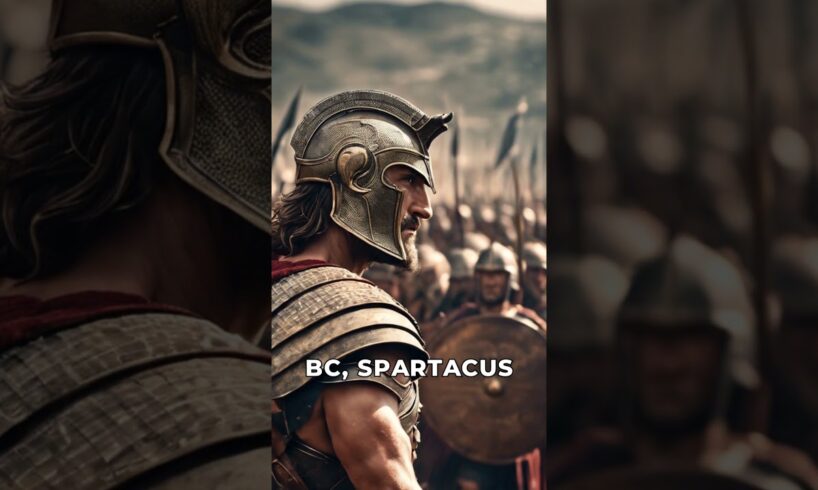
Spartacus is one of history’s most renowned figures, known for leading the most significant and enduring slave revolt in ancient Rome. This uprising against the Roman Republic, known as the Third Servile War, took place from 73 to 71 BC and highlighted the inherent tensions within Roman society, particularly in its reliance on slavery.
Early Life and Enslavement
Origins: Spartacus was believed to be a Thracian by birth, originating from a region within modern-day Bulgaria or Greece. Details about his early life are sparse and largely speculative.
Military Background: It is widely thought that Spartacus once served as a soldier in the Roman army, either as part of a legion or possibly as an auxiliary. He is understood to have deserted, however, and subsequently was captured and sold into slavery.
Gladiator Training: Spartacus was trained at a gladiatorial school (ludus) near Capua, owned by Lentulus Batiatus. The harsh conditions and brutal treatment in the ludus served as a catalyst for his resolve against the oppressors.
The Slave Revolt
Escape: In 73 BC, Spartacus and about 70 to 80 other gladiators made a daring escape from the ludus using makeshift weapons. They seized several wagons of gladiatorial arms and armor on their way out.
Gathering Forces: Once free, Spartacus and his companions took refuge on Mount Vesuvius, where they began attracting a following of other runaway slaves and disaffected peasants. The number of his followers quickly swelled to several thousand.
Early Successes: Spartacus’s forces managed several victories against the Roman military, which underestimated the slave army’s capabilities. These victories boosted the morale of his followers and attracted even more slaves to his cause.
Tactics and Leadership
Guerrilla Warfare: Spartacus effectively employed guerrilla tactics, leveraging his knowledge of the local terrain. His army initially used hit-and-run tactics against Roman forces, which were cumbersome and slow to respond.
Vision of Equality: Unlike many leaders of his time, Spartacus sought not just military victories but also aimed to address the broader inequalities and injustices faced by slaves in Roman society.
Major Battles and Downfall
Confrontation with Rome: The Roman Senate, increasingly alarmed by Spartacus’s successes, tasked Marcus Licinius Crassus with defeating the rebellion. Crassus deployed eight legions in a disciplined and relentless campaign against the slave army.
Battle of the Siler River: In 71 BC, Crassus managed to trap Spartacus and his forces in Southern Italy, near the Siler River. Despite being heavily outnumbered and surrounded, Spartacus’s army fought fiercely.
Death: Spartacus reportedly died in this last major battle, though his body was never found. His death effectively marked the end of the rebellion.
Aftermath and Legacy
Crucifixion of Survivors: After the defeat, about 6,000 of Spartacus’s followers were captured and crucified along the Appian Way from Capua to Rome as a grim warning to any other potential rebels.
Historical Impact: Spartacus’s life and the revolt he led have been interpreted in various ways over the centuries, often seen as a symbol of oppression and the struggle for freedom.
Cultural Depictions: His story has been widely adapted in literature, theater, and film, most famously in the 1960 film “Spartacus” directed by Stanley Kubrick and starring Kirk Douglas, which itself became a cultural icon for freedom and rebellion.
Spartacus remains a powerful symbol of resistance against systemic injustice, celebrated for his bravery, leadership, and the enduring spirit of his quest for freedom. His legacy continues to inspire discussions about liberty, equality, and resistance in the face of oppression.
#foryou #historical #facts #documentary #battle #conqueror #leadership #shortvideo #viral #viralvideo #viralshorts #fyp
source







David Beckham wtf?
Can I get a “huh yea”!